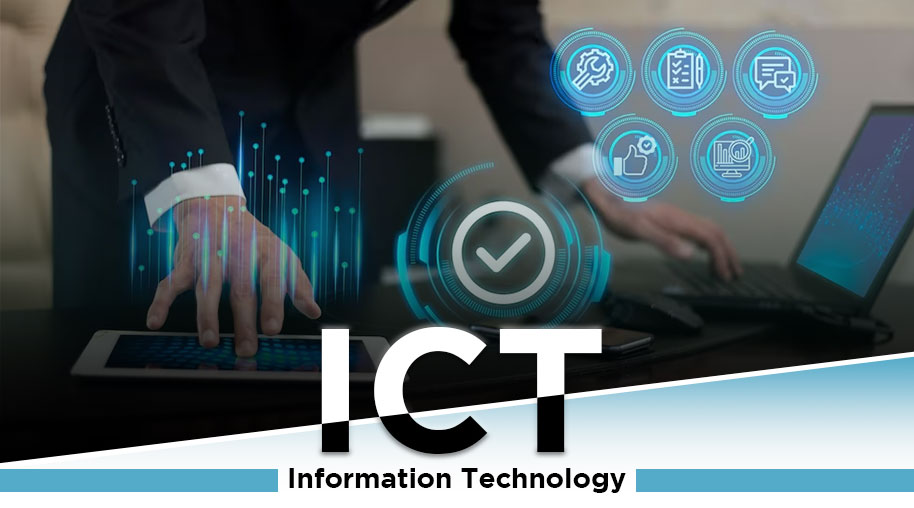Everything You Need To Know About ICT
by Sayani
0 2677
Everything You Need To Know About ICT
In this context, "ICT" refers to the many forms of electronic communication. Network-based control and monitoring, telecommunications, audiovisual processing and transmission systems, intelligent building management systems, broadcast media, and so on all fall under this umbrella term, which also describes the technological tools and resources (Communication Devices and Applications) used to manage these tasks.

Computers, mobile phones, robotics, etc., are all included since they can store, retrieve, and manage digital data. Due to the ever-changing nature of the processes and tools involved in ICT, more than one definition can adequately capture its scope.
ICT's Importance
In today's modern civilization, ICT is essential. Businesses use information and communication technologies (ICT) in many different ways. Intelligent or innovative characteristics are added to pre existing technologies via ICT applications.
The expansion of the economy is affected both directly and indirectly by the ICT sector. The development of a business's reach and popularity is facilitated by the advent of modern means of communication. The use of ICT is essential to many business processes.
A Brief Overview of the Development of Information and Communication Technologies
Its popularity skyrocketed in the years that followed, fundamentally altering how people did business and communicated with one another.
Today, ICT has made it simpler for individuals to generate, access, exchange, and consume information, and the future promises even more exciting advances. Emerging technologies like Quantum Computing and Web3 will inspire many new ICT tools and applications.
At the same time, 6G networks will deliver faster and more dependable connections, generative AI systems like ChatGPT will revolutionize how people produce and acquire knowledge, and more.
A Primer on ICT and Communication
Although ICT and IT are sometimes used interchangeably, the two phrases may have somewhat distinct connotations depending on the setting. Information Technology (IT) may refer exclusively to corporate computers in particular fields, whereas information and communication technology (ICT) covers a more extensive range of topics.
When the difference between IT and ICT is significant, using the two terms interchangeably might cause misunderstanding. One job ad may ask for IT knowledge, while another may ask for ICT knowledge, potentially requiring specialized knowledge of communication and collaboration technologies.
Information technology (IT) is frequently considered a subset of Information and Communication Technology (ICT) that deals with the technical elements of managing data. ICT encompasses information technology like computers and networks and older forms of media like the Telegraph, Telephone, and Television.
Data and Communication Technology in the Centre and on the Periphery
The communication-enabling hardware, software, and network infrastructure of a centralized ITC design is all housed in a single place, with access restricted to users inside that physical space. In the early days of computers, when cable communication infrastructure was expensive, and mainframes had little processing capacity, this method offered a cost-effective alternative.
Decentralized ITC architectures became a reality with the advent of high-speed internet. With the advent of more rapid and more reliable data transmission, remote data storage and access and the virtual deployment of the same programmes to numerous distant servers became feasible. As a result, more people started using UCSs, cloud services, and advanced collaboration technologies.
Broadband's increasing data transfer capacity has also sparked novel applications for P2P network design.
Conclusion
ICT has profoundly impacted business and management. Technology has become a vital component of both large and small organizations today, playing a role in everything from simplifying operations and improving decision-making to allowing new business models and promoting worldwide cooperation.

Share:








Comments
Waiting for your comments